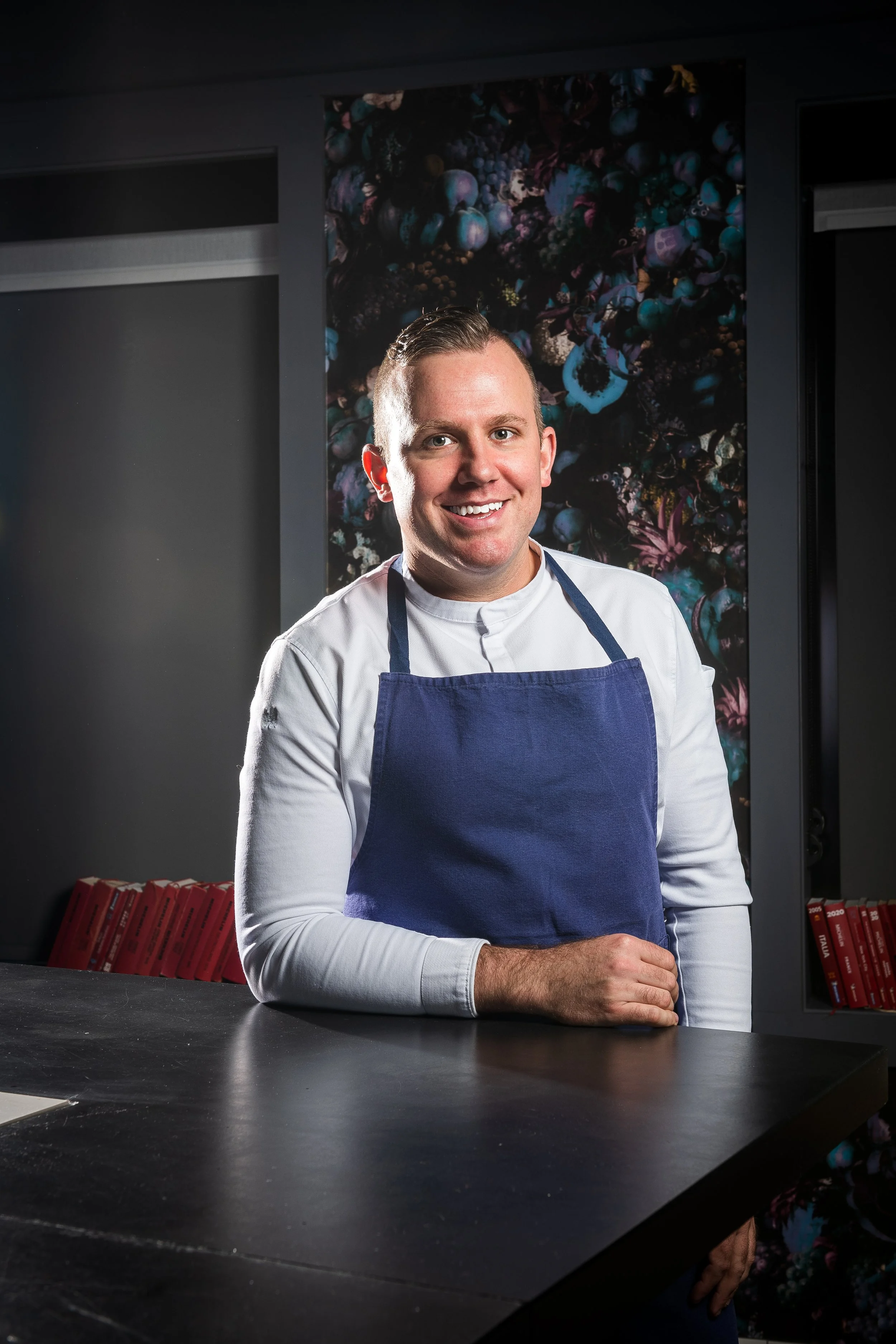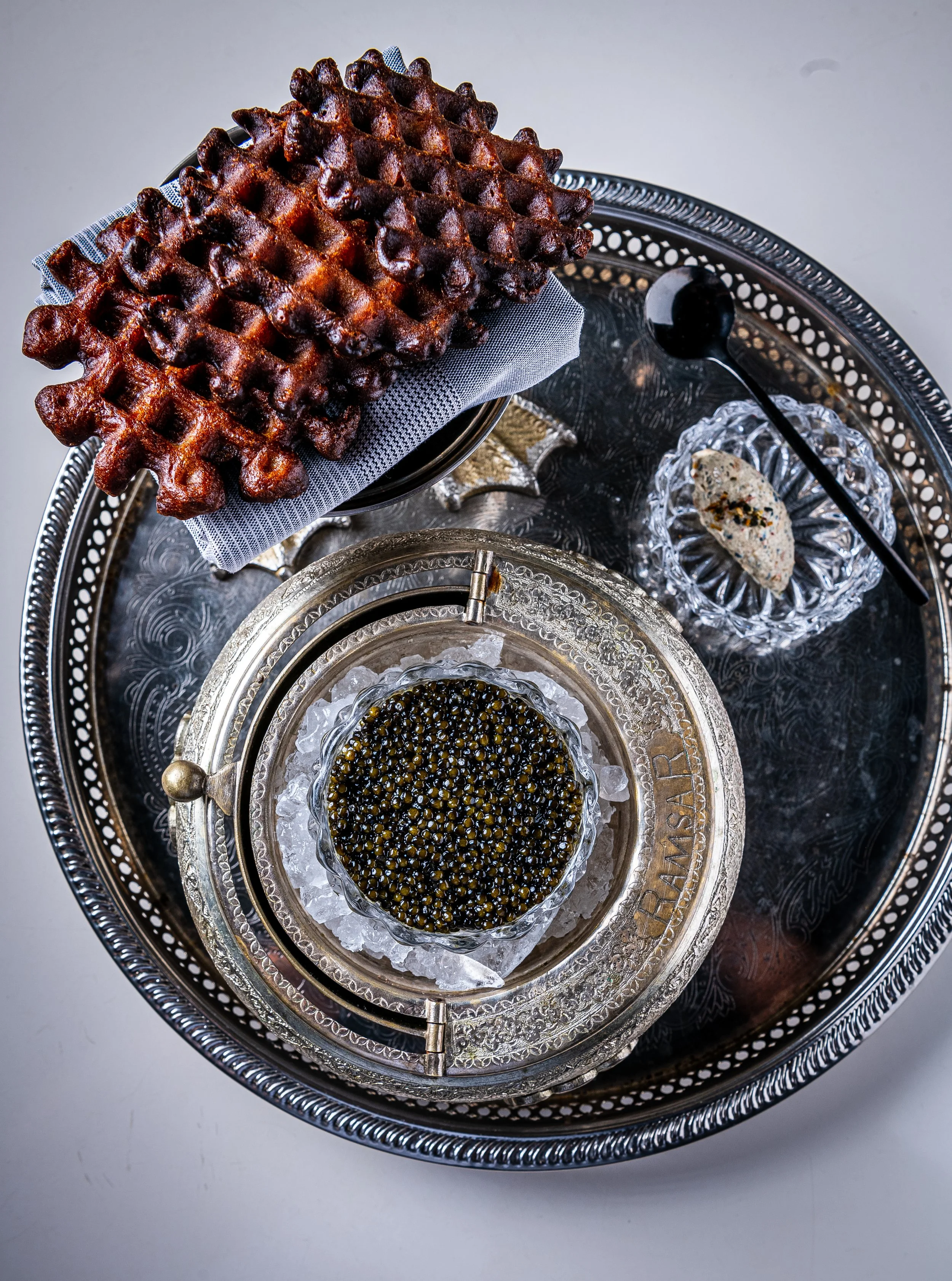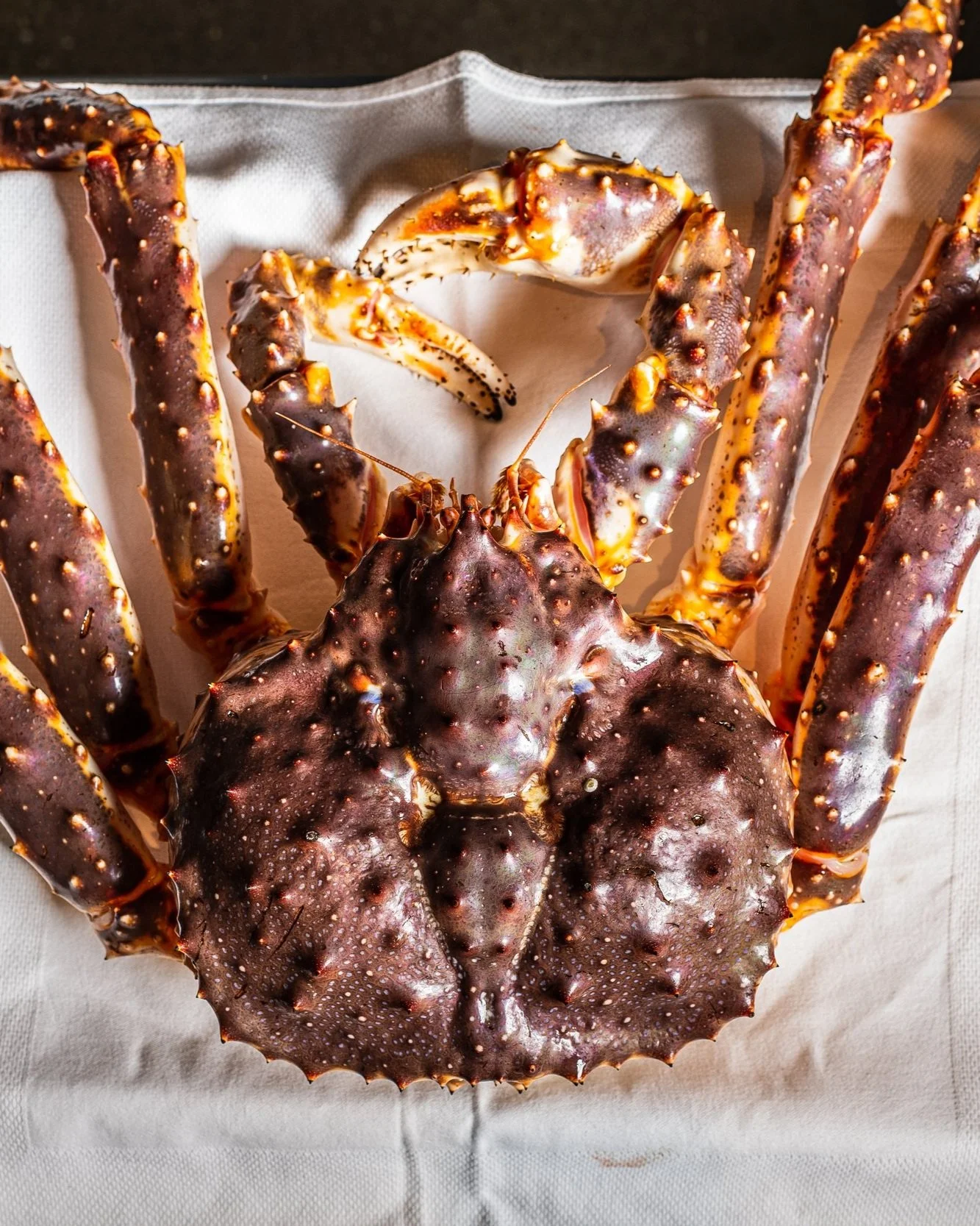Q&A with Ryan Ratino, Executive Chef and Owner of JÔNT and Bresca
Ryan Ratino, Exective Chef and Owner of JÔNT and Bresca | Photo: Rey Lopez
Ryan Ratino, Executive Chef and Owner of Two Michelin-starred JÔNT and One-Michelin-starred Bresca in Washington, DC, helms two of the city’s most beloved dining establishments, and earlier this year, added yet another accolade to his long resume with recognition as a semifinalist for the prestigious James Beard Award for Best Chef Mid-Atlantic. Hailing from the Midwest, Ryan's upbringing in a family of miners instilled in him a resilience that propels the success of his restaurants and has captivated discerning diners around the world. At just 30 years old in 2021, Chef Ratino became the youngest chef ever to own two distinct Michelin-starred establishments, a testament to his unwavering work ethic and creativity cultivated over the years. Chef Ratino continues to channel his Midwestern scrappiness, infusing JÔNT and Bresca with an entrepreneurial spirit that redefines the boundaries of food, hospitality, and beverage. From signature dishes like Duck a la Presse to a culinary approach rooted in both classic and modern techniques, Chef Ryan Ratino's culinary artistry and direction is proof of the results one can glean from an unremitting pursuit to quality – paired with a touch of refined grit.
Q: What is your culinary background and where have you found influence throughout your career?
“I grew up in a middle-class family in Ohio and started cooking when I was a teenager, mostly out of necessity and wanting to help my mother prepare meals. I eventually went on to culinary school at the Cordon Bleu in Florida, and from there, I worked around the country and spent some time in Los Angeles, Michigan, New York City, and then returned to Florida. I was 21 or 22 years old when I became head chef of a restaurant for Todd English at the Swan and Dolphin Hotel, which is now a Marriott property. Being from a middle-class family, I saw hotels as a stable job, which also allowed me paid time off to go stage at restaurants I admired from afar, like wd~50 in NYC. It had a really strong impact on me, and six months later, I moved to Manhattan and joined the team at Caviar Russe, which was run by Chris Agnew at the time.”
Photo: Rey Lopez
Q: How would you describe the culinary philosophy at JÔNT And Bresca?
“Bresca focuses more on European-style of cooking, like roasted poultry, duck a la presse, and things of that nature, whereas at JÔNT, our approach is inspired by Japanese ingredients. Sauce work, consommés, and other European cooking methods are incorporated, but our menu is heavily influenced by flavors and techniques from Japan. For example, we’ll add a couple drops of double fermented soy or make a dashi and steep it with kombu. Quality is at the root of everything we do at JÔNT, meaning we go to extraordinary lengths to use the best caviar, sea urchins, chanterelles, live king crab, and so on. While the menus and approaches at Bresca and JÔNT are different, at the end of the day, our cooking processes and the quality and sourcing of ingredients are huge factors that drive our approach.”
Photo: Rey Lopez
Q: What is your creative process for developing new menus?
“For us, it starts with the suppliers. The producers are our gauge and I never say ‘I want this fish.’ Instead, I’ll let producers know what dish we're working on and ask for a fish that can be grilled nicely over wood fire that has a high fat content or any other attributes depending on what the dish is. From there, we figure out how long are we going to condition or age the fish for. Are we going to leave the skin on? Take the skin off? Are we going to grill it directly over embers? Or are we just going to slowly cook off the fire to get a little bit more smoke flavor. That's kind of our native process. We start with the sourcing. From there, we start to develop the dishes. We don't like forcing dishes and ingredients. Part of cooking is inherently instinctual – you have to just know how to cook and adapt to what nature is giving you.”
Photo: Rey Lopez
Q: You mentioned you serve duck a la presse at Bresca – that’s a rare, complex dish you don’t find served often these days. How did you come about deciding to put it on your menu?
“It's a signature nowadays after introducing it five years ago. It started when we were looking to reinvent an old school dish and researching what we were going to do. I used to frequently work with Ariane Daguin, CEO of D'Artagnan, and one day, I let her know I was thinking about doing a duck press, but I didn’t know where to get started and find the actual press. She let us borrow her father’s duck press, which was being used as a paper weight on his desk. Five months later, Bresca received its first Michelin star and she let us keep it. So now, we have a piece of her family's history in our restaurant pressing duck every single night of the week. It’s a really cool story and so generous of her.
For the actual cooking process, we age the ducks and roast them whole on the crown, and make the sauce from the blood and the bone marrow of the animal. From there, it is presented tableside.”
Photo: Rey Lopez
Q: What’s one of your favorite dishes on JÔNT’s current menu?
“We make a crab rice where we take Hokkaido king crabs and roast them over the fire. And then in the donabe, we cook a short grain rice seasoned with various seaweeds and some aromatics. We then bury the pot in the wood fire. When it comes out, we let it rest for about 45 minutes, and then serve the rice topped with king crab and whatever truffle is in season. It's one of the signatures of the restaurant and people just absolutely love it. It took us about five months of practicing to earn the confidence to make the dish.”
Photo: Rey Lopez
Q: What advice can you give to those starting out in the hospitality industry?
“With the younger generation, one thing I tell everybody is to trust in the process. Find a restaurant or a culture that you believe in, and find a team that you want to work with. Too many good cooks jump on enticing job offers when their career trajectory could benefit from moving through the process, and learning the proper training from a supportive team. Also, clearly communicate your goals with your leadership team. They don't know how to get you where you want to be if you don’t tell them. Not everyone wants to be a chef owner or get into hotels. Some people want to stay independent. There are so many paths in our industry. You have to communicate with your mentorship where you want to land. Once they know that, then they can help you get there.”
Photo: Rey Lopez







